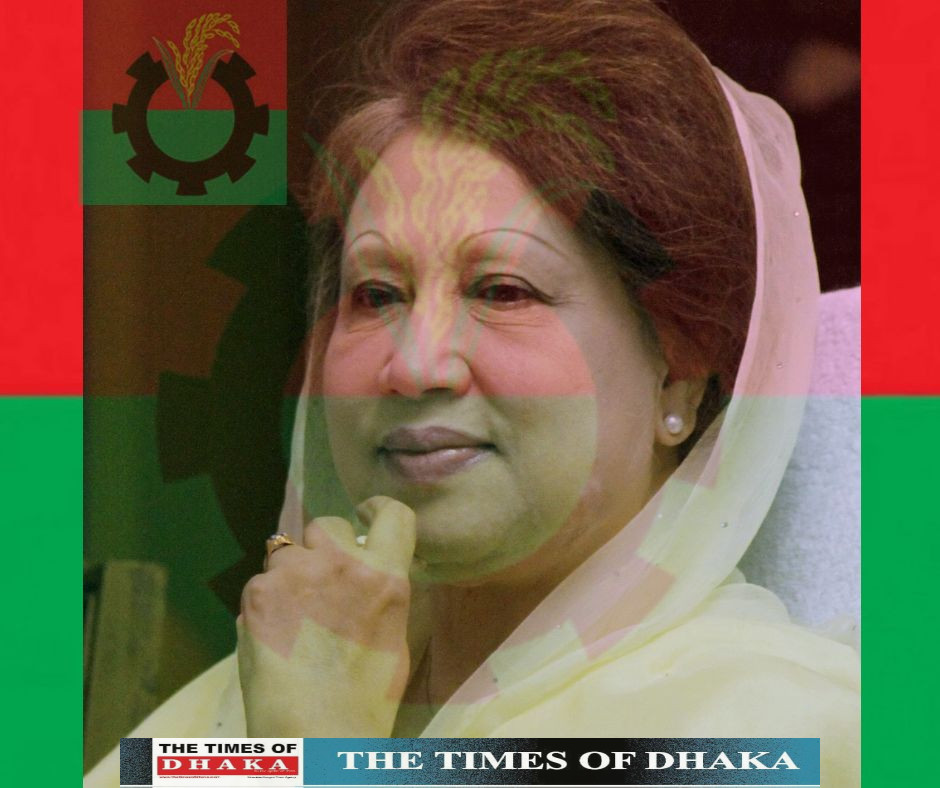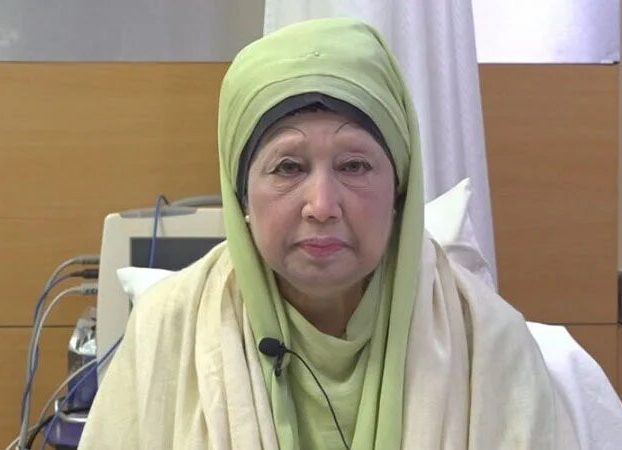
Khaleda Zia, the first female Prime Minister of Bangladesh, is a name synonymous with resilience, leadership, and the tumultuous journey of the nation’s politics. As the widow of former President and BNP (Bangladesh Nationalist Party) founder Ziaur Rahman, she rose from personal tragedy to become one of the most influential figures in Bangladesh’s political history.
Khaleda Zia’s political career began in the early 1980s, following the assassination of her husband, Ziaur Rahman. At a time when the BNP was struggling for direction and survival, Khaleda Zia emerged as the unlikely leader who would guide the party through its darkest hours. With a calm yet determined demeanor, she not only rebuilt the party but also established herself as a formidable leader in a male-dominated political landscape.
Breaking Barriers as Prime Minister
In 1991, Khaleda Zia led the BNP to a historic victory in the general elections, becoming the first woman to hold the office of Prime Minister in Bangladesh. Her tenure marked significant economic reforms and infrastructural development, propelling the country toward modernization. However, her time in office was not without challenges. Her government faced criticism over issues like governance, but she remained steadfast, completing a full term and securing her place in history.
Khaleda Zia’s leadership was reaffirmed when she won the 2001 elections, beginning her second term as Prime Minister. During this period, she focused on continuing her agenda of economic growth and tackling social issues, though political unrest and accusations of corruption began to cloud her administration.
The Struggles of Opposition
Khaleda Zia’s political career is as much about her time in opposition as it is about her time in power. Her leadership faced continuous challenges from the rival Awami League, led by Sheikh Hasina. The rivalry between the two women defined much of Bangladesh’s political landscape for decades, often leading to intense political confrontations.
Her second term in office ended in 2006 amidst rising political tensions and allegations of electoral fraud. The subsequent period saw Bangladesh plunged into political chaos, with emergency rule being imposed in 2007. Khaleda Zia was arrested, marking a dramatic turn in her political journey.
Trials and Tribulations
Khaleda Zia’s later years have been marked by legal battles, political isolation, and declining health. In 2018, she was convicted on charges of corruption, a verdict that her supporters claim was politically motivated. Despite these setbacks, Khaleda Zia’s influence on Bangladeshi politics remains undeniable. Her legacy is a testament to her resilience and determination to shape the future of her country, even in the face of adversity.
The Legacy of a Leader
Khaleda Zia’s political life is a story of endurance and strength. From the tragic loss of her husband to becoming a symbol of leadership and hope for millions, her journey reflects the complexities and challenges of Bangladesh’s political evolution. Though her current health concerns and legal troubles have kept her away from active politics, her impact on the nation’s history is indelible. Khaleda Zia remains a towering figure whose legacy will be debated and remembered for generations to come.
In a country where political fortunes can change overnight, Khaleda Zia’s story is one of unwavering resolve and the relentless pursuit of power, justice, and progress.

 A.B.M. Abir
A.B.M. Abir 


















